CBT for Alcoholism
 Cognitive Behavioural Therapy (CBT) is an effective, practical solution backed by extensive research. It can be used for any number of mental health problems or behavioural issues, including of course, alcoholism.
Cognitive Behavioural Therapy (CBT) is an effective, practical solution backed by extensive research. It can be used for any number of mental health problems or behavioural issues, including of course, alcoholism.
So how does CBT work in relation to alcoholism, what is the process? And, as you’re probably wondering, how will it help you to solve your own alcohol problems?
Alcoholism is different for everyone; the reasons why you drink are not the same as the reasons someone else drinks. So the first step in solving your issues with alcohol is to explore where your drinking fits into your life, what contributes to it, and what might be maintaining the problem? CBT is a method for helping you to examine your thinking styles, your beliefs, and your interpretations of the various aspects of your life, to see if they are unhelpful for you, and particularly to see which ones are fuelling your alcohol consumption.
Once we’ve established a few priority issues to focus on (like work stress, or relationship problems, worry, or depression perhaps) you can practice some pragmatic changes to see which ones are most effective for you, and which ones help you reduce your alcohol intake. Part of what makes CBT so effective is that it’s individually tailored to you and your specific problems, it’s not just a set of instructions to follow.
Alcoholism is a difficult problem to solve though, so the best intentions don’t always work out as you expected. Dealing with mistakes and learning from them is key to this, without criticising yourself. As such, predicting your most likely triggers for drinking is vital, so plans can be developed for how to handle such situations differently.
Another key difference with CBT for alcoholism is that abstinence is not the only option (unlike AA for instance) - most people find they can successfully cut down how much they’re drinking, once they start handling some other aspects of their lives a bit better. Equally, CBT allows you to learn new approaches to problems, without solutions being ‘implanted’ in you, as in hypnosis.
If you’re curious about how CBT can help you, make an initial enquiry with our contact form in the top menu.


 Unfortunately, drinking too much alcohol can make people feel ashamed, especially if you believe that drinking excessively suggests there is something defective about you. Or you believe it is something that needs to be hidden from other people, as you fear their judgement. This is the nature of shame, it is a particularly negative feeling, and is often a factor in depression. It is usually tinged with regret of course, at having done things while drunk that we would never do sober - perhaps hurting other people or behaving inappropriately.
Unfortunately, drinking too much alcohol can make people feel ashamed, especially if you believe that drinking excessively suggests there is something defective about you. Or you believe it is something that needs to be hidden from other people, as you fear their judgement. This is the nature of shame, it is a particularly negative feeling, and is often a factor in depression. It is usually tinged with regret of course, at having done things while drunk that we would never do sober - perhaps hurting other people or behaving inappropriately.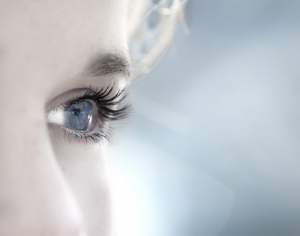 There’s been a lot of media attention on Mindfulness lately, but not so much on how useful it is for dealing with an alcohol problem. So how does mindfulness help us deal with mental health problems generally, and with alcohol issues specifically?
There’s been a lot of media attention on Mindfulness lately, but not so much on how useful it is for dealing with an alcohol problem. So how does mindfulness help us deal with mental health problems generally, and with alcohol issues specifically? Worry is a normal human activity - we all do it from time to time. But for some people, it dominates their life. So how can you stop worrying? The initial answer is that it’s unlikely you’ll be able to stop completely, but you might be able to reduce it. Before we proceed, lets define what worry is.
Worry is a normal human activity - we all do it from time to time. But for some people, it dominates their life. So how can you stop worrying? The initial answer is that it’s unlikely you’ll be able to stop completely, but you might be able to reduce it. Before we proceed, lets define what worry is. Treating depression takes a long time, as it requires various long-standing patterns to be changed.
Treating depression takes a long time, as it requires various long-standing patterns to be changed.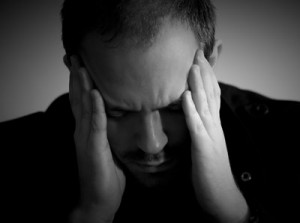 low mood most days (feeling sad or empty)
low mood most days (feeling sad or empty)
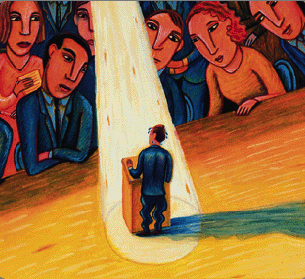 There are several factors which contribute to social anxiety, and each of them needs to be addressed for the whole problem to be dealt with.
There are several factors which contribute to social anxiety, and each of them needs to be addressed for the whole problem to be dealt with. Where you focus your attention is another important factor in reducing social anxiety. You probably pay close attention to the bodily symptoms of your anxiety when you experience it – you become self-conscious, and this acts as a feedback loop because you judge your own anxiety symptoms, making them seem more alarming to you, and so they get worse.
Where you focus your attention is another important factor in reducing social anxiety. You probably pay close attention to the bodily symptoms of your anxiety when you experience it – you become self-conscious, and this acts as a feedback loop because you judge your own anxiety symptoms, making them seem more alarming to you, and so they get worse. Social anxiety is a common problem, characterised by being apprehensive and nervous about potential rejection or humiliation by other people.
Social anxiety is a common problem, characterised by being apprehensive and nervous about potential rejection or humiliation by other people.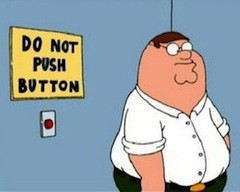 “I wish I could quit drinking so much, but I just don’t have enough willpower”.
“I wish I could quit drinking so much, but I just don’t have enough willpower”. A lot of people consume alcohol as a way to manage stress. How often this is effective as a coping strategy probably decreases as the amount you drink increases. But although alcohol doesn’t really work as a long-term way of handling stressful situations, it does provide relief in the short term. And this is where the problem starts.
A lot of people consume alcohol as a way to manage stress. How often this is effective as a coping strategy probably decreases as the amount you drink increases. But although alcohol doesn’t really work as a long-term way of handling stressful situations, it does provide relief in the short term. And this is where the problem starts. We all make mistakes from time to time, it’s inevitable. But how you react to them can make a big difference to your self esteem.
We all make mistakes from time to time, it’s inevitable. But how you react to them can make a big difference to your self esteem.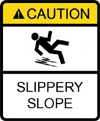 Similarly, how you respond to your alcohol consumption has an impact on how you feel about yourself. If you drink more than you intended one night, you might judge yourself for it, saying something like “you’re such a loser, you got drunk again”. The consequences of such a thought are probably feelings of hopelessness and
Similarly, how you respond to your alcohol consumption has an impact on how you feel about yourself. If you drink more than you intended one night, you might judge yourself for it, saying something like “you’re such a loser, you got drunk again”. The consequences of such a thought are probably feelings of hopelessness and  Although it may seem like ‘just a habit’, you are making a choice to have a drink each and every time. That choice involves many components -
Although it may seem like ‘just a habit’, you are making a choice to have a drink each and every time. That choice involves many components - 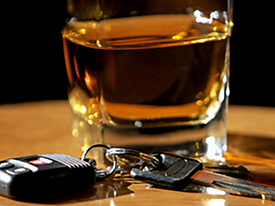 Do you need to give up drinking completely if you have a problem with alcohol? There are conflicting opinions on this. The
Do you need to give up drinking completely if you have a problem with alcohol? There are conflicting opinions on this. The 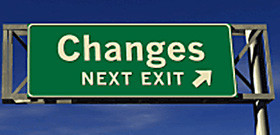 As you’re reading this website, then you might be thinking that you need to change your habits around alcohol. This means you’re in a stage called ‘contemplation’.
As you’re reading this website, then you might be thinking that you need to change your habits around alcohol. This means you’re in a stage called ‘contemplation’. Focussing on negative thoughts as opposed to positive ones leaves you feeling
Focussing on negative thoughts as opposed to positive ones leaves you feeling  Sometimes the terminology used when talking about alcohol problems can be quite unhelpful.
Sometimes the terminology used when talking about alcohol problems can be quite unhelpful.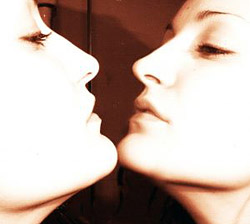 Many people do not accept their own feelings - especially the negative ones. When you feel angry, you might tell yourself, “oh no, I shouldn’t feel angry about it”, or maybe “why do I feel so lonely, what’s wrong with me” ?
Many people do not accept their own feelings - especially the negative ones. When you feel angry, you might tell yourself, “oh no, I shouldn’t feel angry about it”, or maybe “why do I feel so lonely, what’s wrong with me” ?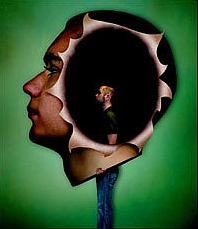 Have you become dependent on alcohol to give you self confidence? Many of our clients say they have no self confidence left because of their drinking. Sometimes they feel so guilty about their behaviour, towards their
Have you become dependent on alcohol to give you self confidence? Many of our clients say they have no self confidence left because of their drinking. Sometimes they feel so guilty about their behaviour, towards their 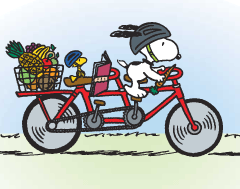 Quite often, people trying to beat alcoholism will need to make some changes to their lifestyle as well as their drinking habits.
Quite often, people trying to beat alcoholism will need to make some changes to their lifestyle as well as their drinking habits.